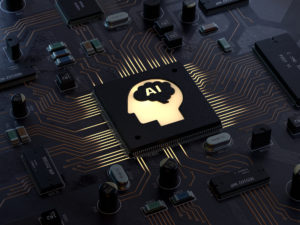
Today, different forms of AI – from digital assistants to chatbots to self-driving cars – help us personally and professionally in various ways, according to “The Wired Guide to Artificial Intelligence.” Organizations across all industries can potentially benefit from leveraging AI to streamline their operations.
If you’re a business leader considering how AI might be able to help your company achieve its goals in 2020 and beyond, here’s everything you should know about this emerging technology.
What Is Artificial Intelligence?
In simple terms, AI is the practice of designing computers and machines to mimic human intelligence. Machines today are programmed to understand the needs and wants of the user based on context, as opposed to relying on direct device inputs. AI has gained a lot of traction and will likely continue to gain popularity in the years to come.
How Does AI Benefit Businesses?
Businesses – depending on the industry they’re in, budget, size and various other factors – can benefit differently from AI technology. Here are just a few examples of how implementing AI can give your organization a competitive advantage.
- Intelligent automation. AI technology allows for the automation of routine tasks – such as generating sales forecasts. With this type of efficiency and AI’s self-learning capabilities, companies can make more well-informed decisions in less time.
- Efficient use of labor and capital. With AI-driven automation tackling mundane day-to-day obligations, workers can focus their time and energy on other more valuable, strategic projects. When team members focus on what really matters, business capital can be better utilized in areas that will have a greater impact on the company.
- Creation of new roles. Contrary to what many business owners believe, AI technology can facilitate job growth rather than diminish it. Given the abundance of data that we use daily, there will be an increase in demand for skilled employees to interpret and manage this information.
- Compliance, security and risk management. AI can automatically monitor and identify security risks to ensure that business and customer data is safe.
Uses for Artificial Intelligence
Organizations across a wide range of industries already rely on AI. In recent years, we’ve seen a surge in the demand for and implementation of this cutting-edge tech in these fields in particular:
- Healthcare. In the healthcare industry, AI-powered applications can provide patients with personalized medical information right at their fingertips.
- Banking. AI in the banking industry is primarily used for security and fraud prevention. With AI software, banks and other financial institutions can identify suspicious transactions and send an alert back to the account holder.
- Retail. AI in retail gives customers a more personalized shopping experience. With complex algorithms, shopping applications can predict and pull in results based on previous searches – providing customers with additional purchase options based on behavior patterns.
- Manufacturing. In manufacturing, this advanced type of technology can perform quality control and diagnostics to ensure that plants and facilities run smoothly and efficiently. AI and machine learning can be used to create more accurate demand forecasts, optimizing manufacturing processes and much more.
Challenges of Artificial Intelligence
Despite its benefits and usability in the workplace, AI does have its limitations:
- Trust. Artificial intelligence, stemming from complex algorithms and huge data, is a challenging concept to understand. For those who have little knowledge of these algorithms, AI may be something they don’t trust completely simply because it is a foreign concept.
- Talent shortage. In addition to the lack of knowledge, companies might also face a shortage of employees who possess the data analytical skills necessary to utilize AI to its fullest potential. This requires businesses to invest in employee training to leverage the benefits of AI technology.
- Investment obstacles. Not all business owners or operators want to invest the time or money into AI. The costs of implementing AI within a business can often be very high, and, given the lack of AI knowledge across the board, business leaders may be hesitant about making the investment.
- Malfunctions. All technology, no matter how powerful or intelligent, can malfunction at times. In the event of software crashes, it often takes skilled professionals to find the root of the problem and come to a resolution. Adding complex algorithms to the mix makes this task even more difficult.
AI can’t do everything. However, it has given us the ability to run automated tasks, pull reports and analyze data at the touch of a button. If you’d like to learn more about the business benefits of AI, our team of expert techs would be happy to help. Don’t hesitate to contact us today by calling 877-599-3999 or emailing sales@stratospherenetworks.com.


